Exit Interview: Being A T. Rex Turned Me Into A Monster
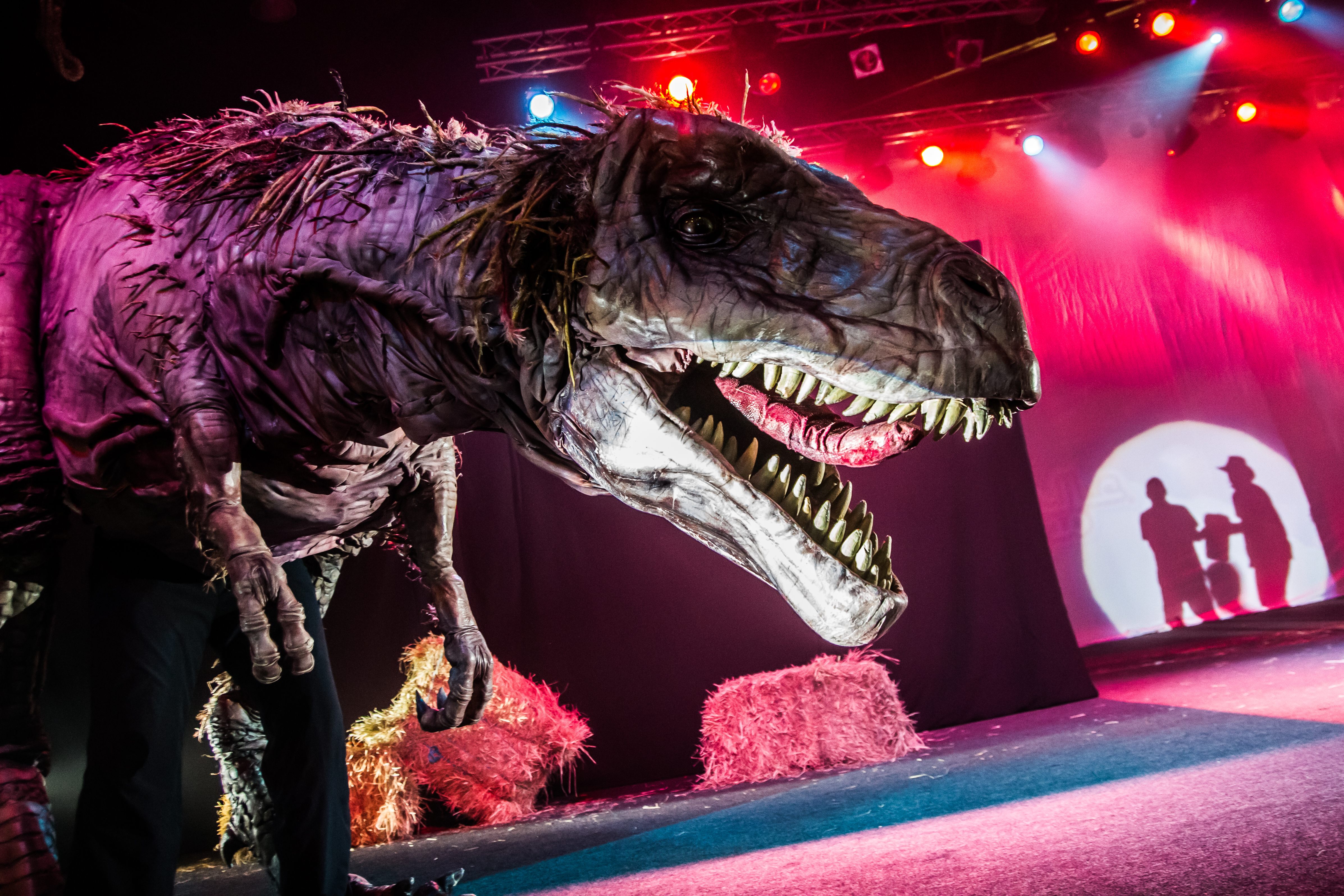
Not to spoil the illusion, but there’s a person inside this T. rex puppet. (Image courtesy of Erth)
Many people have found that their jobs change them, but how would it change you if your job was to be a Tyrannosaurus rex?
Miles Portek says it turned him into a monster. Portek recently spent six months as a host/dinosaur wrangler/T. rex puppeteer in Erth’s Dinosaur Zoo Live show at the Dallas Zoo. As host, he used his easygoing Australian manner to entice kids to get up close and personal with disarmingly realistic dinosaurs. As a puppeteer, he hopped inside a life-like T. rex puppet and went roaming around the zoo freaking people out.
We talked with Portek about what it was like to live and work with some of the most realistic dinosaur puppets on the planet.
These are large-scale, life-size puppets?
Oh yeah. The T. rex puppet is 16 feet long, and probably stands about seven feet high. But when it stands the way you read about T. rexes standing in outdated scientific journals, it probably stands about 10-11 feet high. These are big animals. There’s a beautiful triceratops as well, which is the only triceratops puppet in the world that can be operated by just one person.
All of the puppets are painstakingly made in collaboration with paleontologists around the world. The idea behind the shows is that wherever they are in the world, they want to have dinosaurs from that place and some Australian dinosaurs, so kids everywhere can learn about the dinosaurs they have.
There is a big puppet we have called a Titanosaur, which is about a 30-40 foot long inflatable neck, which appears from offstage to imply that there’s a huge dinosaur backstage. [During the show] there’s a kid onstage that will feed that dinosaur a thing of flowers, and it’s beautiful every time.
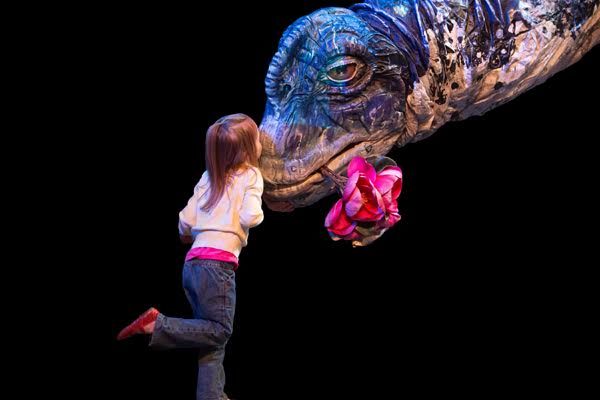
A child and a Titanosaur. (Image courtesy of Erth)
What’s it like to puppet one of these dinosaurs?
When I first stepped in, it was like being in the cockpit of a TIE Fighter [from Star Wars]. You have these control sticks that control the eyes and the mouth and that kind of stuff. Really you just become a dinosaur. You become a T. rex. Every puppeteer that I know in that puppet [gives their T. rex a different personality].
The weight of the puppet comes in a backpack, so it’s like you’re putting on a hiking bag. The weight is on your back and your hips. Mainly your hip strap. Your feet are strapped into the T. rex’s feet, but the knees of the T. rex bend in opposition to your knees. So when you take a step, the T. rex takes a step, but with those incredible, bird-like theropod legs.
Inside, to help you see, there’s a camera on the nose so you can see the world around you. [There’s also] fishnetting across holes in the foam core of the dinosaur so you can get an idea of what’s around you in your peripheral vision. Then there’s a microphone that modulates your voice, dropping it by a couple of octaves, and adds some effects.
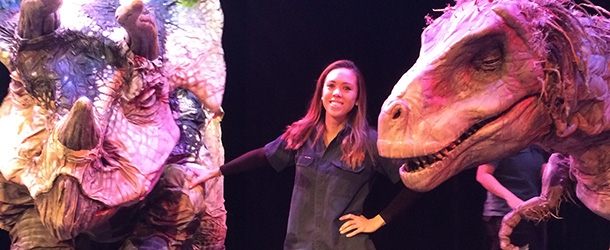
One of Erth’s wranglers. (Image courtesy of Erth)
When I get in there, I just become evil. I just want to scare people and make children cry. [Laughs] Well, not really make children cry. My least favorite thing is when a kid looks at you in the T. rex and says, “That’s not real!” But then when you look at that kid, and you barrel down on them, and roar at them, they’ll run away like everybody else.
This job has changed me, because when that little screen that you see the world through is full of a crying child, and the parents are laughing, but also not laughing, it just brings joy to me. You know how they say that there are chemical changes that you go through when you’re pregnant, and sometimes the emotions get screwed up when you have a baby? Now when I see children cry, my first instinct is to laugh, and be like, “Yeah! The kid’s learning something about dinosaurs. They are scary. They are animals. They are things you can learn from.” When kids are running away, that’s perfect.
So being a T. rex has, in some way, turned you into a monster?
[Laughs] Exactly. While we were in Dallas, Jurassic World came out, and [the zoo used that to promote their whole dinosaur show], called Giants of the Jurassic, which was a whole bunch of animatronic dinosaurs and us. We’d go out to movie theaters after Jurassic World had finished, and the audience would be coming out and be charged down by a T. rex, and that was some of the funnest stuff we’d ever done.
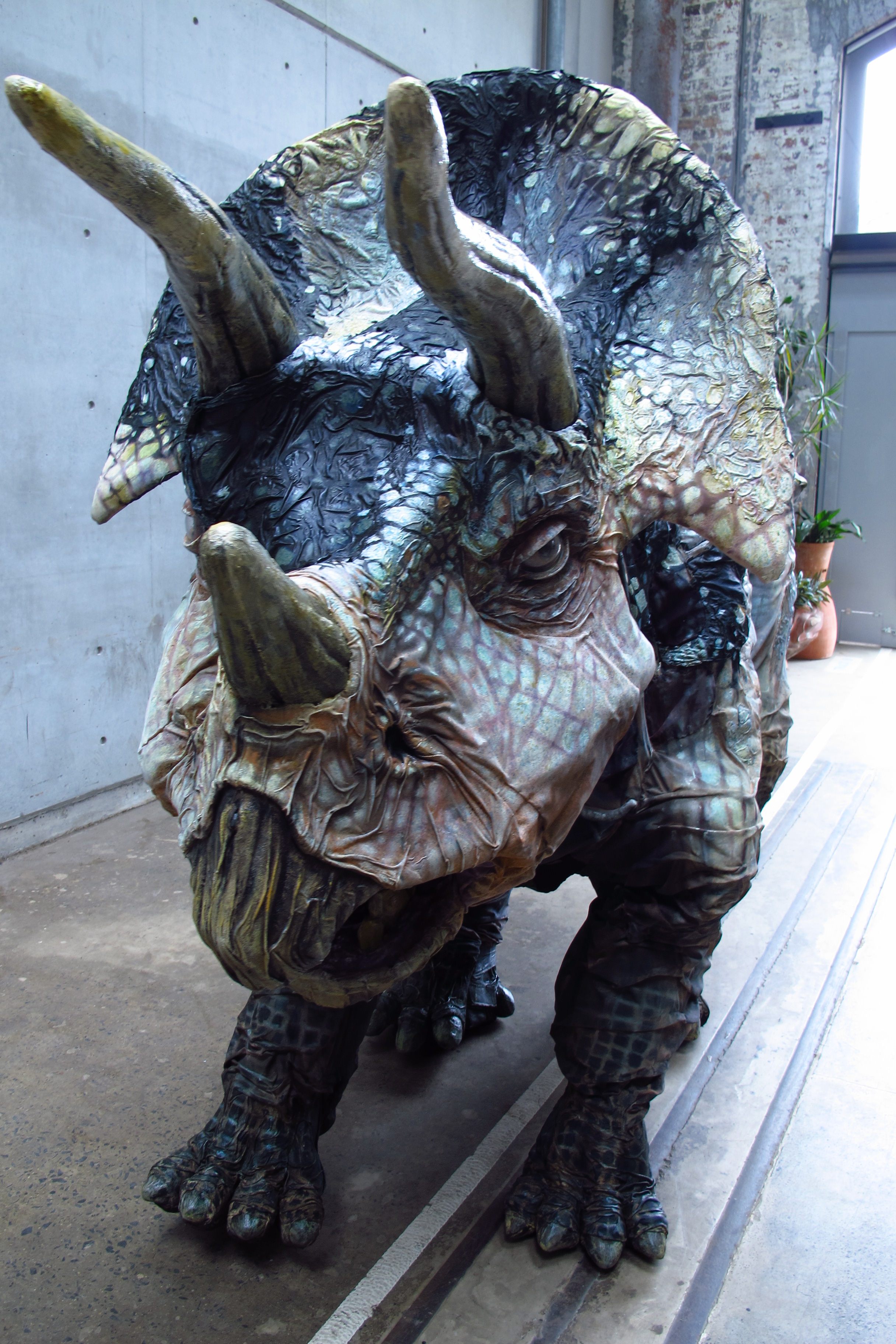
One puppeteer, one Triceratops. (Image courtesy of Erth)
How did you get into this?
I auditioned for their national tour two years ago, and I couldn’t go on that tour. The reason I auditioned is because they’re always looking for Australians wherever they are, because they always want the host of the show to be Australian. Because they’re an Australian company and they like the laid back, laconic style that we have, y’know?
I’d gotten married two days before the audition and he said, “Look, we really liked you, but I can’t in good conscience send you on a six-to-eight month tour, two months after you get married.” I said, “Okay, that’s fine.” He said that there’s this place in New Jersey where they use our puppets, and I should go and try and get a job there, and if there’s ever any future work with us I’ll call you. About 12 months later or so, he called and said “We’re doing something in Dallas if you want to come on down.”
Do you have a background in puppeteering?
My background in puppeteering is just being a dinosaur really. That’s it. That was my first real gig [in that field]. These puppets are just so natural to control. You put someone in there after a week of training or so, and they’re passable. After a month, they’re getting it down. After three months, it’s like they’re an actual dinosaur.
Miles as the T. rex.
During your time with the show, did you develop a connection with any one of the dinosaurs, almost like it was a pet? Was there a favorite that you felt particularly close to?
I just found a real affinity for the prehistoric times. Everything ancient. Whenever we walk past a shop with fossils in it I will go in and look at every fossil. I’ll examine them. I went out and did my first actual fossil hunting in Texas. Then when I came back to New York, within two or three weeks I went out panning for shark teeth and dinosaur bone in New Jersey.
Given your newfound love of dinosaurs and the prehistoric, given the opportunity, would you become a T. rex puppeteer full time?
The one thing stopping me from being a T. rex all the time would be not being able to make that connection with the kids that come onstage. You can only do so much as a dinosaur. The show is designed to empower kids and get them to come up there and stick their head in T. rex, or feed these dinosaurs and overcome their fears and really be empowered by these creatures. As a host, I wouldn’t give up being able to take the kids on that journey for anything.
But any other job in the world, I’d be a T. rex before I’d be that.
(This interview has been edited and condensed)


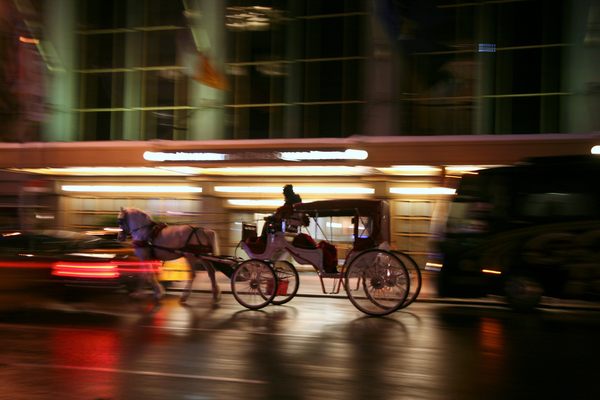
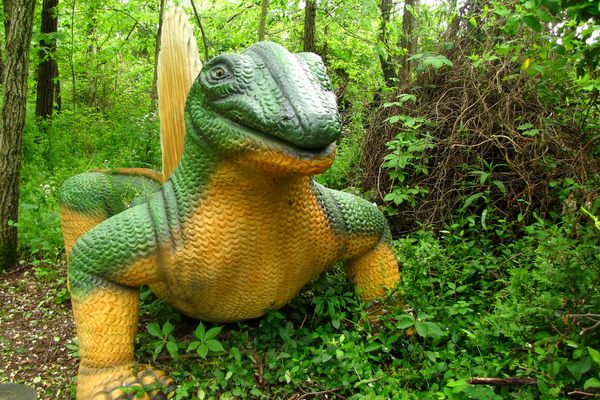













Follow us on Twitter to get the latest on the world's hidden wonders.
Like us on Facebook to get the latest on the world's hidden wonders.
Follow us on Twitter Like us on Facebook